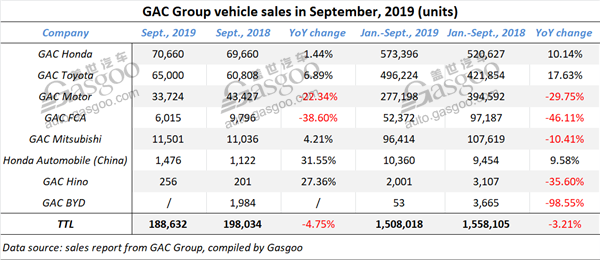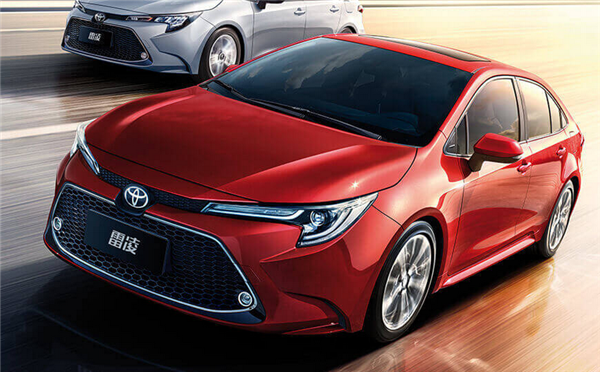GAC Group’s Jan.-Sept. net profit decline, while investment income remains flat
Shanghai (ZXZC)- Chinese automaker GAC Group gained RMB43.031 billion in gross revenue for the first nine months of 2019, versus RMB53.508 billion for the year-ago period, the company said on October 29. Net profit attributable to parent company's shareholders was RMB6.335 billion, plunging 35.75% from a year ago.
The income from investment for the first three quarters reached RMB7.509 billion, basically remaining flat over the same period a year earlier. The stable performance was partly be attributed to the rising sales of two major Sino-Japanese joint ventures. Despite the general downturn in China's auto market, GAC Honda and GAC Toyota still achieved 10.14% and 17.63% year-on-year growth in Jan.-Sept. sales, according to the group's sales report.

Frequent launch of new products shall significantly boost GAC Group's sales. As for its self-owned PVs, the all-new Trumpchi GA6 and the Aion LX flagship BEV hit the market in late August and mid-October respectively. Besides, the second-generation Trumpchi GS4 rolled off the production line at GAC Motor's Guangzhou plant on October 22, making the indigenous PV brand complete the production of 2 million vehicles.

(Photo source: GAC Honda)
Moreover, GAC Honda kicked off on September 25 the presale of the all-new SUV Breeze, which is likely to go on sale in November. The all-new Levin, with its monthly sales exceeding 20,000 units for three straight months, has already cracked the lineup of mainstream midsize cars.

(Photo source: GAC Toyota)
In September, GAC Group stepped up the collaboration with its significant partner Toyota. According to the framework agreement, both parties would make joint efforts to promote the R&D and popularization of electrified vehicles in the world's largest auto market.
Apart from co-launching more hybrid and plug-in hybrid models, they would be dedicated to rolling out affordable high-quality all-electric and hydrogen fuel cell models to satisfy Chinese consumers' demands over power diversity.
Besides, the cemented cooperation also involved ICV-related projects, said Toyota.

